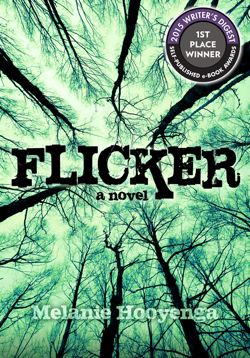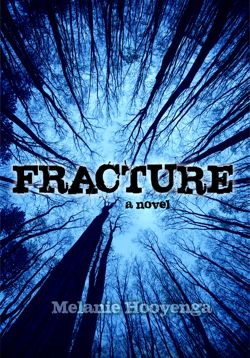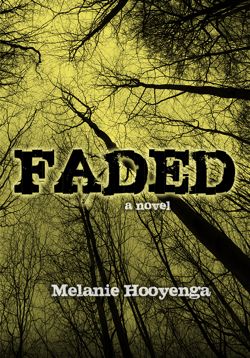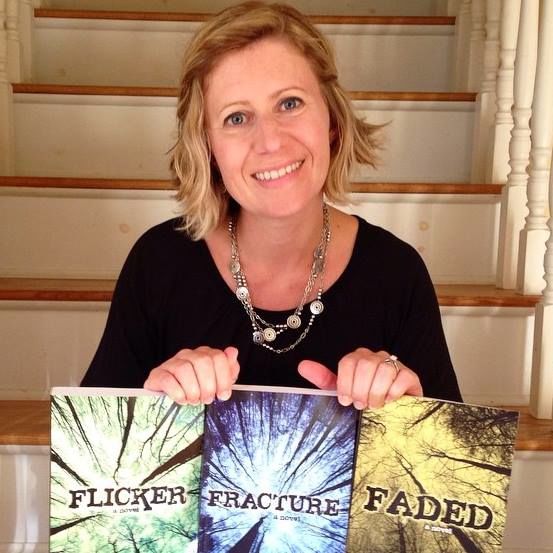Writing is a very solitary endeavor.
It’s easy to feel lost, to doubt yourself, to feel like you’re wasting your time creating something that no one will read, and if they do, won’t like. Add to that how close the kitchen is and before you know it, half—who am I kidding? An entire—bag of Special K sea salt cracker chips have somehow disappeared down my throat.
I don’t drink soda—only water and tea during the day—so hydration isn’t an issue for me, but I use the bathroom frequently, which is near the kitchen…. You can see where this is going. I make a choice to avoid junk food (I couldn’t tell you the last time I ate fast food) and I even the snacks I buy are relatively healthy.

Physically, I have lower back problems from playing sports my entire life, and being in any position for too long can be a problem. I try to stay active and I do a lot of stretches to prevent my back from seizing up, plus I’m very careful about lifting heavy things, but when it does act up, I fire up the heating pad and settle in.
If I’m Inactive for More Than One Day, It’s Hard to Write
I’ve always been very active, so while I sometimes struggle to find the time to exercise, it’s always been a priority. If I’m inactive for more than one day I get leg cramps that can make it almost impossible to sit, which makes it a bit hard to write.
Fortunately my husband is like me so we do a lot, especially in the summer: softball, golf, biking, walking, hiking, volleyball, bowling, and we play a mean game of cornhole. On the days we’re not playing sports I do kickboxing videos in my basement.
Battling “Sitting Disease”
I got a new job last fall that has me sitting a lot more than I’m used to, so to combat the onset of “sitting disease,” we bought FitBits to track our steps.

The standard daily goal is 10,000 per day and I typically get right around that—but only if I walk the dog AND work out, and some days that just can’t happen.
I try not to beat myself up over it, but if you ever drive by my house in the evening and see my running laps in my living room, now you know why.
Who Am I to Think I Can Write Something Worthwhile?
I think the biggest emotional challenge for me is self-doubt. Why am I doing this? What’s the point?
Who’s going to read this, let alone like it?
Who am I to think I can write something worthwhile? (I could do this all day so I’ll stop here.)
I’m also a perfectionist, so I can be really hard on myself in terms of output, goals, and comparing myself to other authors.
The “what’s the point?” has the biggest potential to derail what I’m trying to accomplish. There are a hundred other things competing for my time and some nights I just don’t want to contact Amazon to figure out why my book is suddenly listed as two books (my headache this week) or tackle that particularly challenging note from a beta reader to “make this part deeper.”
Once You Start Down the Slippery Slope of Slacking Off, It’s Tough to Get Back
Because I self-published my novels, all deadlines are self-imposed, which can make it especially challenging to stay on track.
I’m very hard on myself and rarely allow a free day—I also use reading as a reward and don’t let myself read a book until I reach a certain goal—because I worry that once you start down the slippery slope of slacking off, it’s tough to get back in the habit of writing every day.
As challenging as it can be to keep going, I’m happiest when I’m writing regularly.
When I’m able to sit down with my characters for an hour (preferably in the morning before I’ve started my day), I feel a sense of calm that I don’t find anywhere else.
There’s a quote that says, “No one else can write your story,” and I firmly believe that’s true. You could ask a dozen people to write a story about two teenagers meeting on vacation (the start of my current novel) and you’d get a dozen different stories. That still doesn’t guarantee anyone will want to read my version of that story, but knowing mine is unique keeps me going.

Hurry Up and Become a Famous Book Publisher So I Can Quit My Job
That said, I have a wonderful group of writing friends who keep me sane. Only one lives close enough for me to see in person, but I text, email, and message the others almost daily. Knowing they’re experiencing the same things I am (self-doubt, writer’s block, and a myriad of other publication ups and downs) makes me feel less alone.
I also have the most supportive husband in the world who regularly tells me to hurry up and become a famous book publisher so he can quit his job. While he’s obviously joking—I’d be the one to quit, hello?!—it means the world to me that he recognizes how important writing is to me.
I’d Always Sworn Up and Down that I Would Never Self-Publish
I’d always sworn up and down that I would never self-publish.
I was going traditional—period.
I wrote the first book in my trilogy in 2010 and actively queried for about a year and a half, and during that time, six agents requested the full manuscript but ultimately all passed. Each agent was very gracious and encouraging, which is wonderful, but didn’t provide concrete reasons for passing.
I was stuck.
But the market changed, and the stigma slowly slipped away. (It’s still there, and it’s still something I struggle with—I often feel like the step-child to my friends who are traditionally published.) Because the agents who passed never said “your book sucks,” or “I hate your characters,” I ultimately decided that rather than letting my story waste away in my computer, I’d push it out into the world and see what happened.
With Each Book, My Momentum Increased
I’ve been a graphic designer my entire life so was in a unique position where I could package my book and create the marketing materials on my own. So I did. Then I realized that my story would be better served as a trilogy, so I wrote books two and three and self-published those as well.
With each book, my momentum has increased—having a backlist helps sales because people see that you’re not a one-hit wonder—and while I’m still not where I want to be (is anyone?), I’m happy with how my writing career has grown.
That said, I’m currently querying my latest novel—a YA romantic comedy. It’s scary and nerve-wracking to set myself up for rejection, but I love feeling like I’m part of the game. And this time I have a safety net: If nothing happens and no agents are interested, then I’ll stick with what I know and self-publish this as well.
And I’ll always keep writing.
Crossing the Line from Reader to a Mystical Being Who Creates Books
When I decided to write a novel in 2007, I had no idea if I could do it. I like READING novels, and I wrote a ton of short stories as a kid, but novels are really long and I’d never tackled a project that I knew could take me months—or even a year—to finish.
I wrote that first book by hand (I really have no idea why) and when I scrawled THE END in all caps… it was the best feeling in the world. I felt like I crossed a line from reader to one of the mystical beings who actually creates books.
And it didn’t hurt that my friends and family were impressed with my accomplishment.
I’ve written six novels so far and have ideas for three more. Ideas are a challenge for me because I need to know how a story ends before I can begin writing it, but it’s gotten easier over time. I write a very detailed outline so rarely get stuck—the biggest challenge for me is figuring out the complete idea—but the more novels I write, the more I know this is what I’m supposed to be doing.
Advice for a Young Writer: Make Sure You Love Writing
Going back to what I said earlier: writing is a solitary endeavor and it can be very hard to stay motivated.
There will always be people who second-guess your dreams or turn up their nose at what you write, plus it’s very hard to make a full-time living as a writer, so you need to make sure you’re doing this because you love writing and you love what you’re writing.
Don’t chase trends, and don’t write something because it’s what someone else expects or you’re embarrassed about what actually interests you. You’re going to spend a long time with your book—it may as well be something you like!
That said, there will be times when you hate what you’re writing and are convinced it’s garbage. Don’t delete it—just keep writing. Later, when the doubt fades a little and you read what you’ve written, you’ll realize it’s not so bad after all.
And that’s the best feeling in the world.
* * *
Melanie Hooyenga is the author of the YA trilogy, the Flicker Effect, about a teen who uses sunlight to travel back to yesterday. The first book, Flicker, won first place for Middle Grade/Young Adult in the Writer’s Digest 2015 Self-Published eBook awards. When not at her day job as Communications Director at a local nonprofit, you can find her wrangling her 6-year old Miniature Schnauzer Owen and playing every sport imaginable with her husband Jeremy.
To read more about Melanie and her work, please see her website, or connect with her on Facebook, Twitter, and Instagram. She also has an Intragram account for one of her characters, Elizabeth Clement.
 Flicker: Biz is a perfectly normal teenager except for one minor detail: she uses sunlight to jump back to yesterday. She takes advantage of flickering by retaking Trig tests, fixing fights with her boyfriend (or reliving the making up), and repeating pretty much anything that could be done better. Trouble is, flickering makes her head explode from the inside. Or feel like it anyway.
Flicker: Biz is a perfectly normal teenager except for one minor detail: she uses sunlight to jump back to yesterday. She takes advantage of flickering by retaking Trig tests, fixing fights with her boyfriend (or reliving the making up), and repeating pretty much anything that could be done better. Trouble is, flickering makes her head explode from the inside. Or feel like it anyway.
No one knows about her freakish ability and she’s content to keep it that way. Guys don’t stick around because she refuses to let them in, but all that changes when Cameron, her best friend, starts looking oh-so-yummy. Suddenly she’s noticing his biceps, his smile, and the cute way his eyes crinkle when he—gah! This is her friend!
But the butterflies come to a screeching halt when little girls start disappearing, then take a nosedive when the police link the kidnappings to Cameron’s sister, who vanished years earlier. As the police grasp for clues, Biz photographs a strange man lurking in the shadows and realizes that her flickering can help more than just herself.
Available at Amazon, Barnes & Noble, Kobo, and Smashwords.
 Fracture: When seventeen-year old Biz wakes up from surgery after helping catch a kidnapper, she thinks she’s lost her ability to flicker—travel back in time eighteen hours—but she soon discovers her ability is stronger than ever. And so are the mind-blowing headaches.
Fracture: When seventeen-year old Biz wakes up from surgery after helping catch a kidnapper, she thinks she’s lost her ability to flicker—travel back in time eighteen hours—but she soon discovers her ability is stronger than ever. And so are the mind-blowing headaches.
But flickering isn’t the only thing giving Biz headaches. Her newly shaved head brings out the bullies, her boyfriend Cameron is getting a little too chummy with a girl from the kidnap support group, and Cameron’s formerly kidnapped sister is having some serious adjustment issues.
When her dad’s health takes a turn for the worse, she turns to her neurosurgeon who operated on her. If she tells him the truth, he could figure out why she and her dad flicker and save her before her entire world—and her own health—crumbles. But can Biz trust him with her secret?
Available at Amazon, Barnes & Noble, and Kobo.
 Faded: Biz didn’t think life could get worse after the tragic events that surrounded her last flicker, but when she accidentally flickers on her eighteenth birthday after doing shots of vodka—she’s forced to face the consequences of her actions in a way she never imagined.
Faded: Biz didn’t think life could get worse after the tragic events that surrounded her last flicker, but when she accidentally flickers on her eighteenth birthday after doing shots of vodka—she’s forced to face the consequences of her actions in a way she never imagined.
When an anonymous email threatens to reveal her secret, Biz must decide if flickering is all it’s cracked up to be, or if she needs to stop. Forever.
Available at Amazon, Barnes & Noble, Kobo, and Smashwords.



Loved this play-by-play recollection of getting your books out there, Melanie!
Thanks Kay! I’m glad you enjoyed it.
Hi Melanie! Good for you for pushing through the doubts and all the other things that can keep us from writing. As you say, there are so many benefits it’s hard to imagine a better life. Good luck to all your future writing projects. ~Kathy
Thank you Kathy! I might have to tack this article on the wall to keep remind g myself. 😉
Thank you so much for having me!
Thank YOU Melanie. It’s great to have your thoughts here. Love the idea of running laps in the living room! (ha) Anything to beat sitting disease. :O)